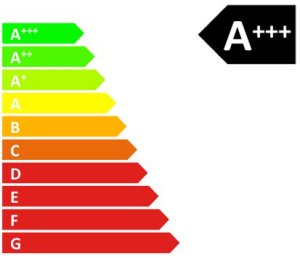Net zero or heat pumps do not save the climate
Nowadays there is a great deal of national focus on energy neutrality and on heat pumps. Rural and urban plans usually sound very nice, and fortunately quite subsidized, only it is not fully effective, if you zoom out for a while. That zooming out is starting to become my thing. The "Self-sufficient off-grid" course talks so much about basic principles and basic concepts that this kind of concepts will float to the surface by themselves, and become increasingly clear. Hopefully, this article will inspire you to think a little further than just the side that public opinion is pushing you to.
Net zero
Having a net zero house sounds like a fairy tale. You consume as much electricity in a year as you generate. It sounds like you're saving the world with it, but that's not quite the case.
- First of all, you are only talking about electricity. So you forget for a moment all the gas that you use for your household, and all the emissions you cause for transport, whether that is petrol or diesel. Let's be honest: maybe you also eat meat every day (since that has the greatest environmental consequences, more than your power consumption). Energy neutral is therefore by definition as "complete" as it sounds.
- Secondly, you may forget that if you use a lot of electricity in the evening or at night, or if you switch on a device that produces heat (washing machine, kettle, microwave, electric oven, infrared heating, heat pump), then just for you personally the coal-fired power stations are blaring (unless the wind is blowing very hard and you have 100% green electricity). Although you save your emissions on an annual basis, by using your yield at times when it is not available in an environmentally friendly manner (= not during the day), you are in practice still polluting if you use that electricity in the evening or at night. consumed.
It would be useful to also learn to use hardly any power in the evening and at night. In fact, for environmental reasons, electricity should then be bizarrely unaffordable, and electricity during the day extremely cheap during the day - but that's another story.
Net zero is already well on its way. It just makes little sense if we don't also save more, for example by using electricity mainly during the day. I would rather see that we have so many solar panels, and save so much, that we generate (almost) enough electricity for every household in the winter. In the course we also briefly calculate how many solar panels you would need, and that makes most people think.
Heat pumps
And then heat pumps. Wonderful invention, with which we efficiently obtain heat -usually from cold outside air- with as little electricity as possible. Ideal right?
- Firstly, I would like heat pumps to only come on between mid-October and mid-March. Heat pumps are huge energy guzzlers. Not because they are inefficient, but because our heat demand is enormous. Fortunately, there is an alternative for the other 7 months of the year. This is called solar water heater. With a large heat-pipe system (so not the hybrid and not too small, small and not old flat plate systems) you can also obtain your shower heat and space heating for free in the spring and autumn.
A heatpipe solar water heater is not only 2.5 times more efficient at capturing solar energy than solar panels, it is also pure magic. At the end of October I still had 60 degrees of water from my 60-tube solar water heater system (when it was 10 degrees and cloudy outside). That 60 degrees is not enough for my coffee (in August with 95 degrees it is) but that is more than enough for a shower (37 degrees) and to heat the house (40 degrees with low temperature heating). - Secondly, I sincerely hold my breath when the netting ends. Netting means that the power grid can be used as an unlimited battery. What will heat pump owners do with an energy-neutral house when the netting stops?
Currently, many people with (savings) money now opt for a heat pump and low temperature heating and solar panels. Not necessarily for environmental reasons, but because you now save more than investing. But if that netting ends, then it is financially attractive if you buy a huge battery - such as a Tesla Powerwall - that stores the largest daily energy peaks, so that you can still use the heat pump and washing machine, etc. in the evening.
You guessed it: such a huge battery turns out to be the most environmentally unfriendly of all possible measures. And that while a solar water heater just works with normal water: my average size 500 liter buffer is energetically equal to 3.5 times a Tesla Powerwall...
Heat pumps seem ideal in winter, only unnecessary during the rest of the year. Instead of buying Tesla Powerwalls later when the netting ends, it is better to get a large solar boiler system now that does not require the use of a heat pump in spring and autumn. Buying a solar boiler system afterwards if you already have a heat pump is complicated and therefore more expensive: it is cheaper if you buy it right away.
In addition to solar panels and a heat pump, what would you most like to have at home: one or more polluting Powerwalls, or a solar boiler system that stores heat in ordinary water?
Check out our popular course Selfsufficient Off-grid.
